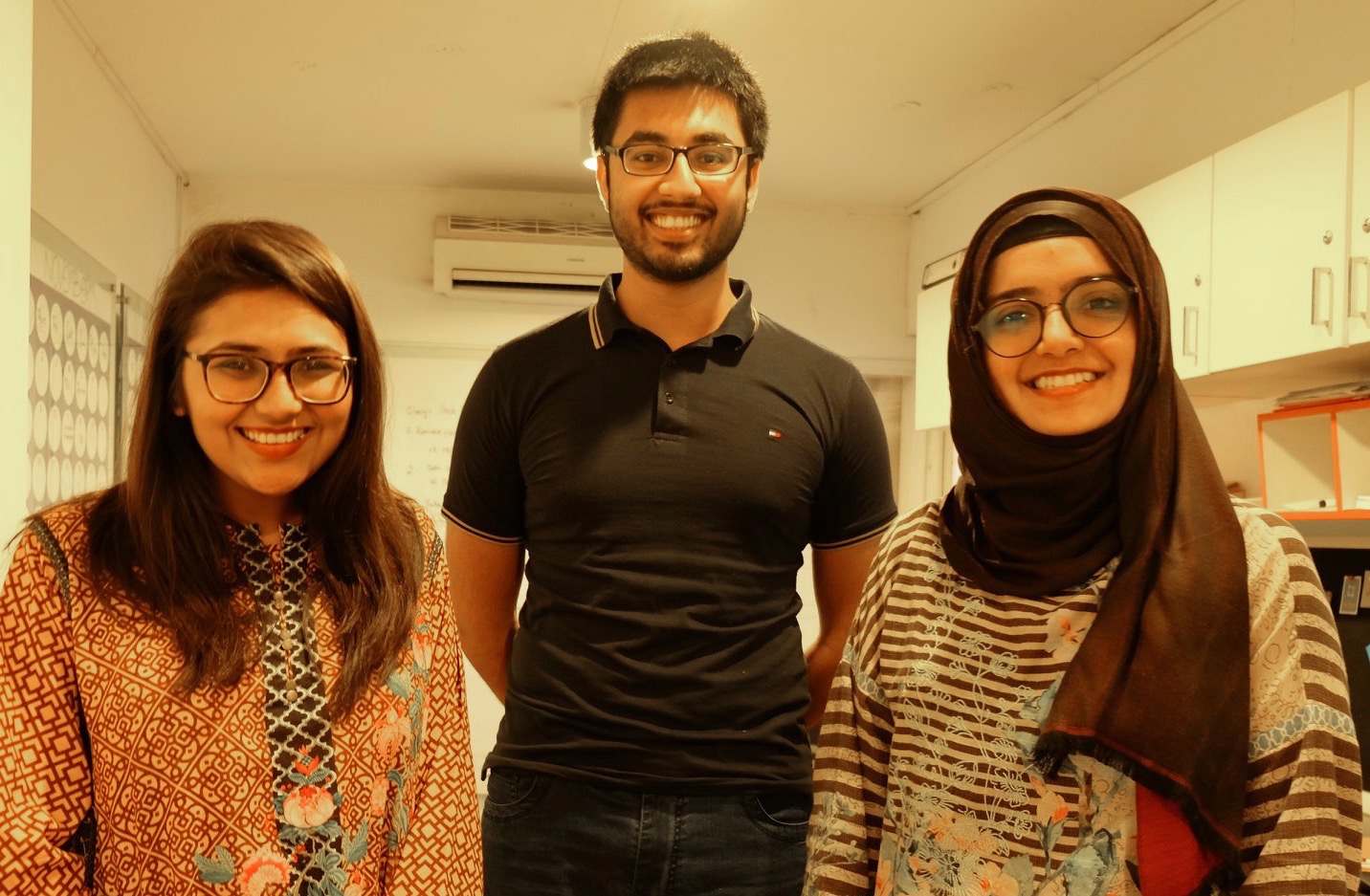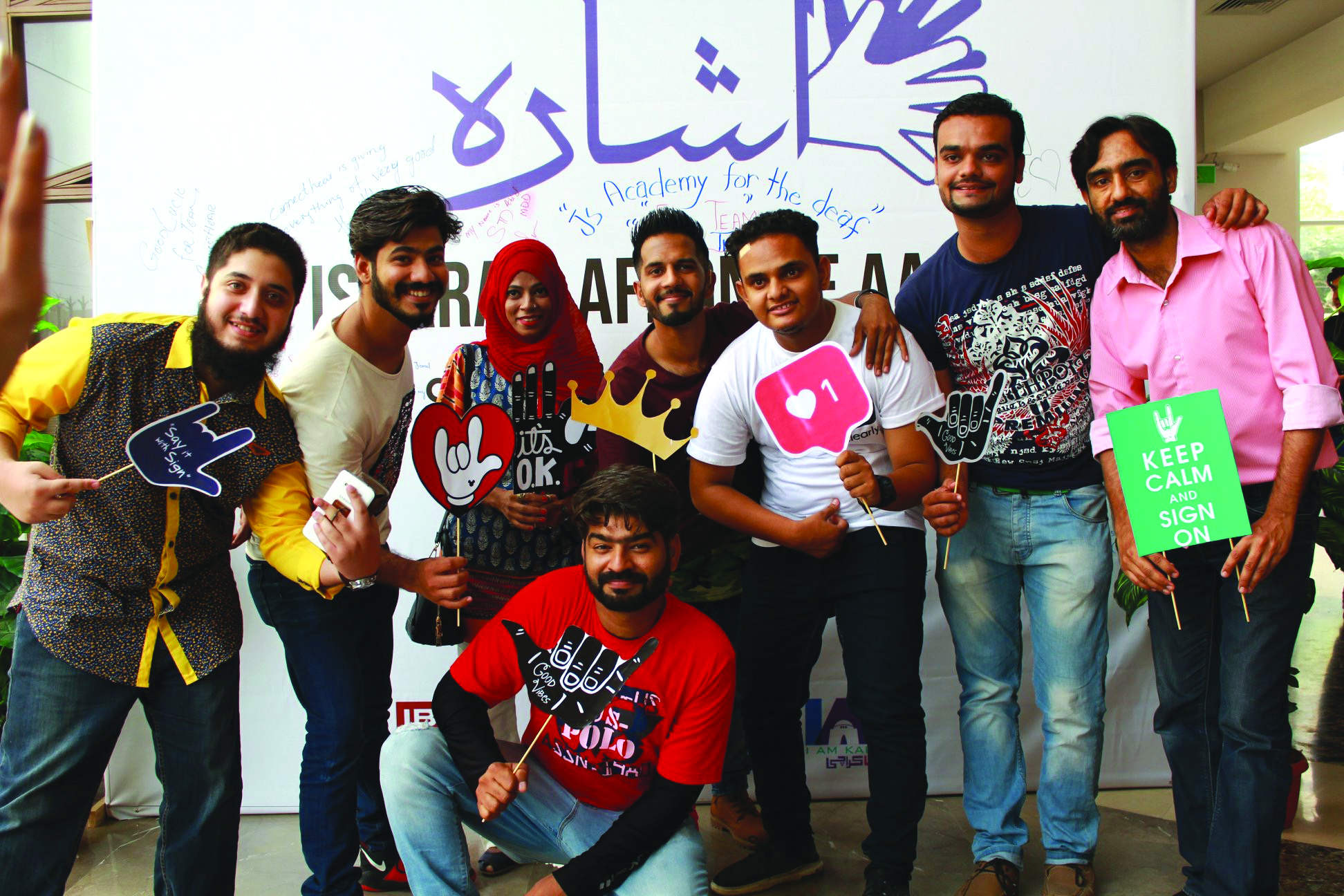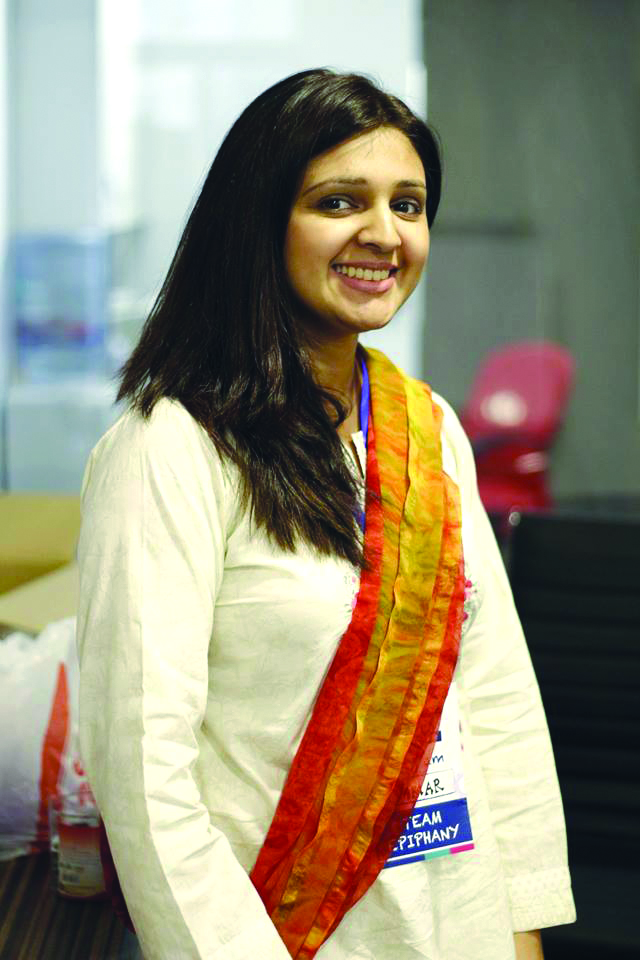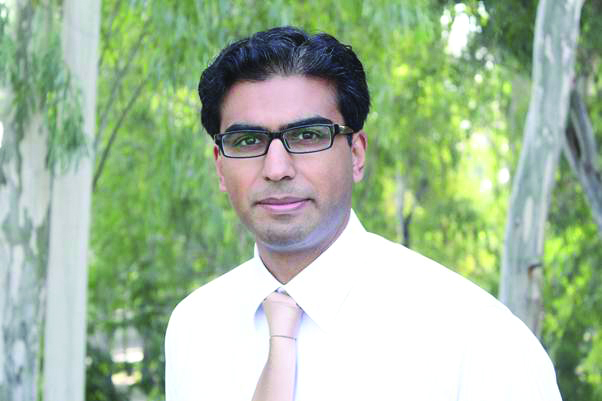Global focus: Pakistan
Pakistan faces many challenges, but while some see its enormous population of young people as a problem, others believe that the youth generation offers the country its best hope of a brighter future
Azima Dhanjee is 20 years old and a student at Karachi’s Institute of Business Administration. She’s also the CEO of a start-up which she founded during last year’s summer vacation and which, as she has gradually discovered, is a social enterprise.
Azima is one of a growing number of Pakistani young adults who are waking up to the possibility that they can become social entrepreneurs. “There is so much socially that has to be changed in Pakistan,” she says. “Social enterprise is a brilliant concept and it can help the community to drive forward. It’s going to be a big deal over here, inshallah.”

Azhima Dhanjee (left) with the co-founders of her social enterprise, ConnectHear, Arhum Ishtiaq and Areej Al Medinah
Social enterprise, as yet, has no formal structure or official definition in Pakistan. Yet British Council research published in 2016 estimated that there might be as many as 448,000 social enterprises in the country. The British Council also discovered that not only were most social enterprises recently founded (more than half were launched after 2013) but most social entrepreneurs were under 35.
Social enterprise is going to be a big deal over here, inshallah
In addition to the youthful profile of social enterprise leaders, a good proportion of them were women. Just over one-fifth of Pakistani social enterprises are led by women, compared with only 5% of mainstream businesses.
As Azima points out, Pakistan has a lot of problems to solve. The country’s Population and Housing Census 2017 put the population at 207m, a growth of 57% since the last census in 1998, making it the world’s fifth most populous country, behind China, India, the US and Indonesia.
The population growth is slowing, now standing at 2.4 per cent a year (by way of comparison, the UK’s population growth is 0.6% a year), but Pakistan remains 147th out of 148 in the Human Development Index with close to 30% of the population living in poverty and a literacy rate of 58%.
Pakistan also performs miserably in terms of gender equality. According to the World Economic Forum it stands at 143rd out of 144 countries. Only 20% of parliamentary seats are held by women and female participation in the labour force is 26% compared with 86% for men. This is one of the lowest female labour force participation rates in the south Asia region, comments the World Bank.
“With abysmal human development indicators, this population explosion presents a most serious challenge to the socioeconomic stability and security of this country,” columnist Zahid Hussain wrote in Pakistan’s Dawn newspaper shortly after the publication of the census. “With 60% of the population under the age of 30 and fewer job opportunities, it is a disaster in the making.” He called for action to “defuse this exploding bomb”.
However, the “youth bulge” which so worried Hussain is, for others, cause for optimism. It provides the country with a potential demographic dividend, says the World Bank. And the Pakistani government says: “The country is blessed with energetic youth and this workforce can be a productive asset of the country if properly trained.”
Others agree, pointing out that not only can young people provide vigorous income-generating potential but that this energy can be directed for good. Speaking at the Social Enterprise World Forum in September 2018, Naeem Zimindar, chairman of the Pakistan government’s Board of Investment and previous Pakistan director of social impact investment firm, Acumen, said: “We have a very young population. Young people want to change things, we just need to channel that energy.”

Social enterprise ConnectHear aims to reach out to deaf communities all over Pakistan and beyond
Azima certainly has lots of energy to make a difference. She was inspired to set up her enterprise, ConnectHear, after attending an entrepreneurship class as part of her university studies. Her parents are deaf and she and her brother have interpreted for them since they were young. After talking to some school friends, Areej Al Medinah, who has skills in business development, and Arhum Ishtiaq, a technology whizz, they put together a proposal for a sign language interpretation start-up which they took to The Nest I/O, a tech incubator in Karachi. “We pitched our idea and they said we could start work straight away,” Azima says.
They began offering to teach people Pakistani Sign Language. Through their lively Facebook page, deaf people were getting in touch from all over the country and they hit upon the idea of using WhatsApp to offer sign language interpretation over long distances. The first call helped a young man talk to his bank manager. Since then, they have provided sign language interpretation for corporate events and run deaf-inclusive events such as theatre performances and debates.
“We were sure we didn’t want to provide our services for free,” says Azima. “Our mentors told us the differences between an NGO and a social start-up.” Since then, she has developed her knowledge of social enterprise by attending further training and taking part in Drivers for Change, an 11-day trip around the UK for young people from all over the world with ideas of how make a difference in their own communities.
Azima and her team of ten people, who are all under 21, have big ideas for the future, including offering sign language interpretation throughout Pakistan, India and Bangladesh and exploring the automation of sign language.
 However, there are hurdles for young social entrepreneurs like Azima to overcome. Samar Hasan (pictured left) and Shah Saud Sahibzada founded Epiphany in Islamabad to provide more training programmes and support for entrepreneurs, particularly social entrepreneurs and women entrepreneurs.
However, there are hurdles for young social entrepreneurs like Azima to overcome. Samar Hasan (pictured left) and Shah Saud Sahibzada founded Epiphany in Islamabad to provide more training programmes and support for entrepreneurs, particularly social entrepreneurs and women entrepreneurs.
Samar (another young entrepreneur at 35 years old) explains that there are lots of challenges for Pakistan’s young entrepreneurs to overcome. “There is pressure to go out and get a job from their parents who have spent a lot of money on their education and want to see a return on their investment,” she says. “And if they get married there is a big pressure for a man to provide for his family or for a woman to become a mother and housewife.”
She adds that the people coming to Epiphany for advice are often not ready for investment: instead they need “really basic skills development” such as communication, ability to work in teams and confidence-building.
And women suffer from a lack of female role models and peer support as well as practical challenges such as access to bank accounts. According to the World Bank, less than 5% of Pakistani women are included in the formal financial sector.
Young people want to change things, we just need to channel that energy
Such challenges are echoed by British Council research into the role of social enterprise in supporting women’s empowerment in Pakistan. Activist to Entrepreneur, published in 2017, highlights that “many of the inequalities that exist in the wider economy are also reflected in the social enterprise sector.”
A movement is gathering strength to improve the prospects of Pakistan’s budding social entrepreneurs. In addition to capacity-building initiatives such as Epiphany and other business incubators such as the well-known SEED Ventures, there are around 50 microfinance institutions and a growing number of social investors active in the country. Importantly, the government is taking an interest too. In 2015 it established the Centre for Social Entrepreneurship and a campaign is under way to establish clear legislation to support the sector.
The social enterprise landscape in Pakistan: a view from the ground by Dr Vaqar Ahmed
 The rise of social entrepreneurs working across Pakistan is being recognised globally. Clean drinking water, low cost housing, renewable energy and affordable health facilities are all subjects which have seen both “market failure” and weakness of state to ensure quality service delivery. This gap is fast being bridged by the social enterprises working in diverse sectors of the economy.
The rise of social entrepreneurs working across Pakistan is being recognised globally. Clean drinking water, low cost housing, renewable energy and affordable health facilities are all subjects which have seen both “market failure” and weakness of state to ensure quality service delivery. This gap is fast being bridged by the social enterprises working in diverse sectors of the economy.
The growth of these enterprises is being driven first by a youth bulge – over 60% of Pakistan’s population is still under the age of 25; willing to take a risk and going the self-employment way. In only a single month, October 2018, data from the Securities & Exchange Commission of Pakistan shows that 1,395 new firms were registered. There is no ready information available as to how many of these fall under any broad definition of social enterprise, however, one can conclude that the small and medium enterprise sector has seen an expansion.
Second, these youth are connected through affordable technologies which help support “information economies of scale”. They can get the intelligence rather quickly (and often with no cost) on gaps in public service delivery, business models which can serve the communities, and low-cost solutions which help make sustainable profits.
Third, youth are increasingly finding themselves in fast-paced urban spaces. Pakistan has one of the highest rates of urbanisation in the region. The advantages associated with agglomeration imply that youth are connected with dense networks of markets, clients and infrastructure.
Fourth, universities and the tech-based business community have established incubators and accelerator facilities endowed with office space and mentors. They provide opportunities to network and help in finding investors who appreciate social cause.
Fifth, the deregulation of media and growth in private sector print, electronic and social media platforms allows debates around how the demographic dividend could be harnessed. Media outlets, with think tanks and practitioners, have presented social enterprise success stories.
The rise of social entrepreneurs working across Pakistan is being recognised globally
At the same time it has been highlighted in media and policy platforms that enterprises which result in a failure could have faced a different outcome if appropriate policy and regulatory environment was available. The British Council and the Sustainable Development Policy Institute (SDPI) are working extensively in helping the federal and provincial governments towards putting in place a policy environment which encourages youth- and women-led social entrepreneurship and in turn helps towards achievement of priority sustainable development goals (SDGs).
The 2016 British Council survey shows that social entrepreneurs expect the new democratically elected government in Pakistan to: a) lower the cost of doing business for social enterprises through a tax system that values social impact, b) help social enterprises overcome access to funding through a more socially conscious credit policy by the central bank, c) support social enterprises to scale-up through quota in public procurement, and above all, d) to engage with the Securities & Exchange Commission of Pakistan in giving a legal definition of social enterprises in Pakistan.
Dr Vaqar Ahmed is joint executive director of the Sustainable Development Policy Institute, Pakistan. His book ‘Pakistan’s Agenda for Economic Reforms’ was recently published by Oxford University Press. Twitter @vaqarahmed
Go to www.britishcouncil.org/society/social-enterprise/reports to read the British Council research about Pakistan and many other countries.



